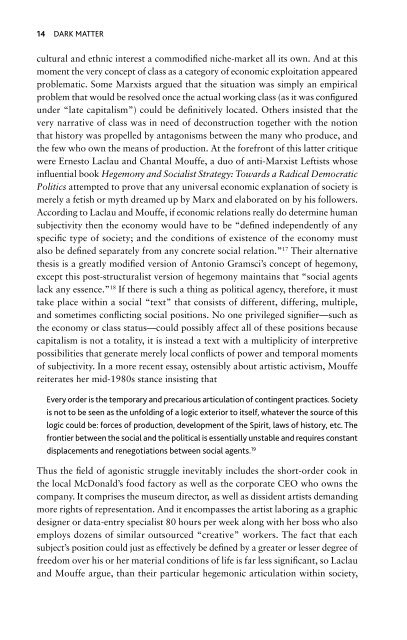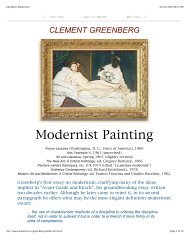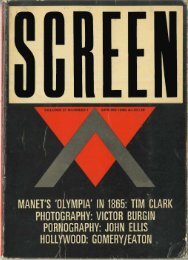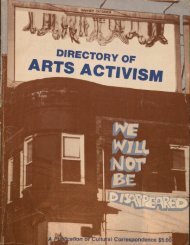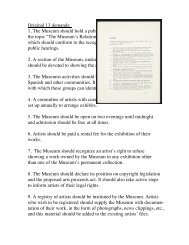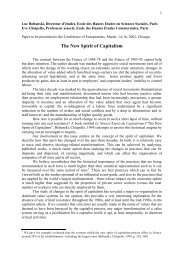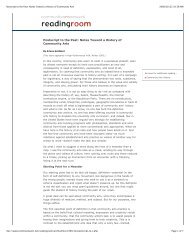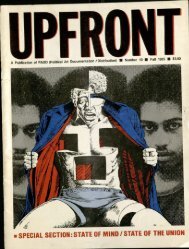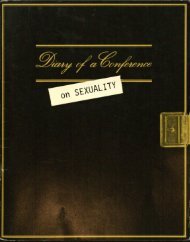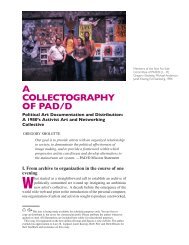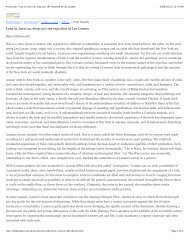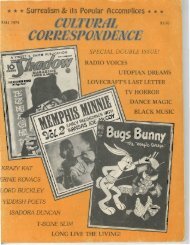Dark Matter Archives
Dark Matter Archives
Dark Matter Archives
You also want an ePaper? Increase the reach of your titles
YUMPU automatically turns print PDFs into web optimized ePapers that Google loves.
14 <strong>Dark</strong> mattercultural and ethnic interest a commodified niche-market all its own. And at thismoment the very concept of class as a category of economic exploitation appearedproblematic. Some Marxists argued that the situation was simply an empiricalproblem that would be resolved once the actual working class (as it was configuredunder “late capitalism”) could be definitively located. Others insisted that thevery narrative of class was in need of deconstruction together with the notionthat history was propelled by antagonisms between the many who produce, andthe few who own the means of production. At the forefront of this latter critiquewere Ernesto Laclau and Chantal Mouffe, a duo of anti-Marxist Leftists whoseinfluential book Hegemony and Socialist Strategy: Towards a Radical DemocraticPolitics attempted to prove that any universal economic explanation of society ismerely a fetish or myth dreamed up by Marx and elaborated on by his followers.According to Laclau and Mouffe, if economic relations really do determine humansubjectivity then the economy would have to be “defined independently of anyspecific type of society; and the conditions of existence of the economy mustalso be defined separately from any concrete social relation.” 17 Their alternativethesis is a greatly modified version of Antonio Gramsci’s concept of hegemony,except this post-structuralist version of hegemony maintains that “social agentslack any essence.” 18 If there is such a thing as political agency, therefore, it musttake place within a social “text” that consists of different, differing, multiple,and sometimes conflicting social positions. No one privileged signifier—such asthe economy or class status—could possibly affect all of these positions becausecapitalism is not a totality, it is instead a text with a multiplicity of interpretivepossibilities that generate merely local conflicts of power and temporal momentsof subjectivity. In a more recent essay, ostensibly about artistic activism, Mouffereiterates her mid-1980s stance insisting thatEvery order is the temporary and precarious articulation of contingent practices. Societyis not to be seen as the unfolding of a logic exterior to itself, whatever the source of thislogic could be: forces of production, development of the Spirit, laws of history, etc. Thefrontier between the social and the political is essentially unstable and requires constantdisplacements and renegotiations between social agents. 19Thus the field of agonistic struggle inevitably includes the short-order cook inthe local McDonald’s food factory as well as the corporate CEO who owns thecompany. It comprises the museum director, as well as dissident artists demandingmore rights of representation. And it encompasses the artist laboring as a graphicdesigner or data-entry specialist 80 hours per week along with her boss who alsoemploys dozens of similar outsourced “creative” workers. The fact that eachsubject’s position could just as effectively be defined by a greater or lesser degree offreedom over his or her material conditions of life is far less significant, so Laclauand Mouffe argue, than their particular hegemonic articulation within society,


